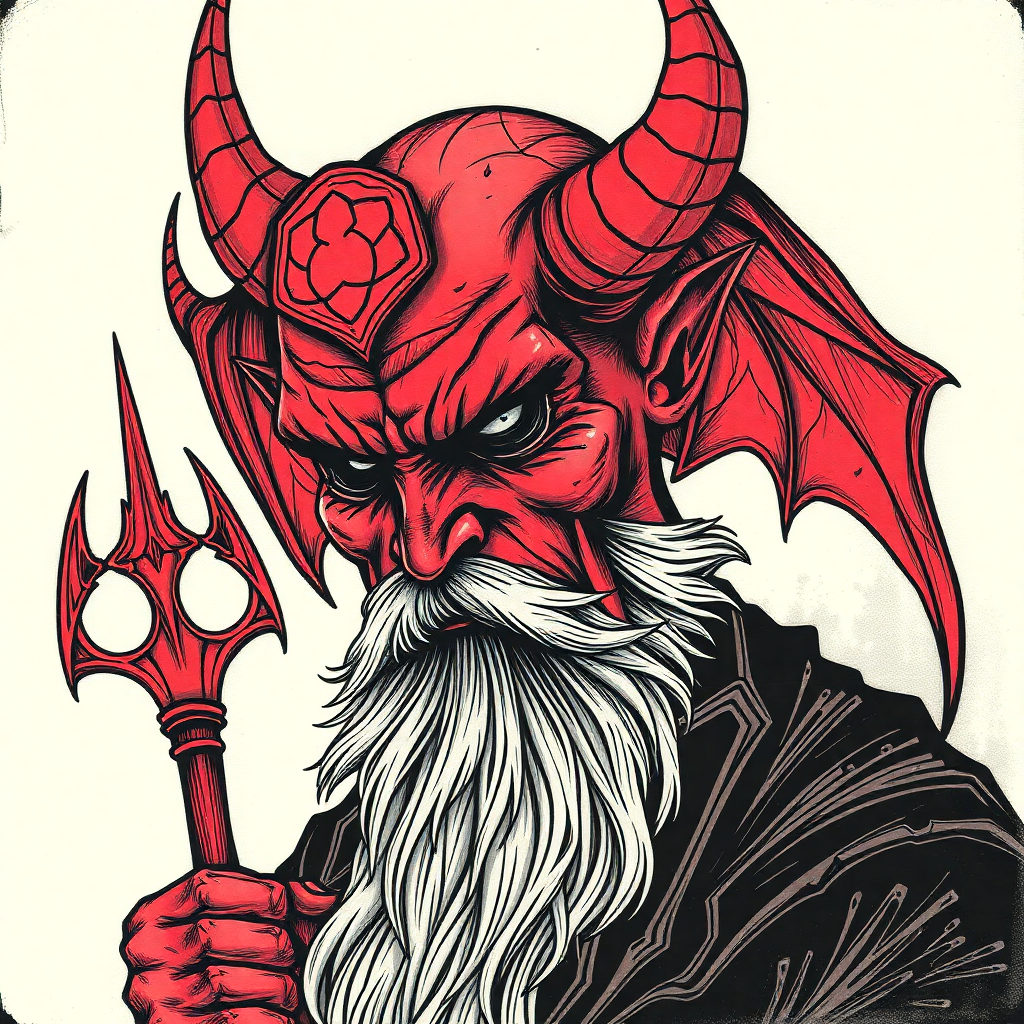Who is the devil's father?
Traditionally, Satan is viewed as a fallen angel, one of God’s creations who rebelled against divine authority and was cast out of Heaven. In this light, God could be interpreted as the metaphorical "father" of the devil, but this relationship is more complex than a simple paternal association.
The concept of a "devil's father" evokes intriguing questions that delve deep into folklore, theology, and cultural interpretations of good and evil. Most often associated with notions of sin and malevolence, the figure of the devil is multifaceted. Many explore connections to various deities and figures throughout history, leading to compelling discussions about the origins of evil within religious and mythological contexts.
The Theological Perspective
In Christian theology, the devil is often identified with Satan, a being who plays an integral role in the narrative of humanity's fall from grace. Traditionally, Satan is viewed as a fallen angel, one of God’s creations who rebelled against divine authority and was cast out of Heaven. In this light, God could be interpreted as the metaphorical "father" of the devil, but this relationship is more complex than a simple paternal association. While God is indeed the creator of all things, including angels, the notion of a direct paternal link between God and the devil raises questions of free will, rebellion, and the nature of evil.

The Role of Mythology
Many cultures have their own versions of the devil and associated figures. In numerous mythologies, the idea of evil is personified in various deities that may have complex relationships with gods of good. For instance, in some iterations of Mesopotamian mythology, chaos gods represent disorder, often standing in opposition to creators who symbolize order and harmony.
If we were to identify a "father" figure from these narratives associated with chaos or mischief, one might consider gods like Tiamat in Babylonian myths. Tiamat, often seen as a primordial embodiment of chaos, represents a force that, while not a father in the traditional sense, gives rise to many aspects of evil and disorder.
Cultural Narratives
Literature and popular culture have also shaped our understanding of the devil's origins. In John Milton's "Paradise Lost," for example, the character of Satan is portrayed as a tragic figure, a brilliant angel cast into darkness. Milton imbues Satan with complex motivations and emotions, making him a challenging character who prompts readers to consider the nature of rebellion and ambition. While Milton does not provide a literal "father" for the devil, the narrative suggests a lineage of defiance against creation itself, positioning Satan almost as the progeny of ambition gone awry.
Philosophical Considerations
Philosophically, the question of the devil's father leads to discussions about the nature of evil itself. Is evil an inherent part of the universe, or is it a construct formed from human experiences and perceptions? Some philosophers argue that evil is not an entity but rather a consequence of free will and moral choices. In this sense, the devil may not have a father but rather exists as a representation of humanity's darker impulses. This perspective invites readers to examine their own relationships with good and evil and how societal norms shape our understanding of these concepts.
The Devil in Popular Culture
Modern representations of the devil and his father figure often take on more symbolic meanings. In contemporary media, the idea of the "devil's father" manifests in numerous ways, including film, literature, and television. Characters like Mephistopheles in Goethe's "Faust" or the many iterations of Lucifer in TV shows bring fresh interpretations to a traditional motif. Often, these stories explore themes of temptation, power, and redemption, suggesting a rich complexity in the relationships we form around the idea of evil.